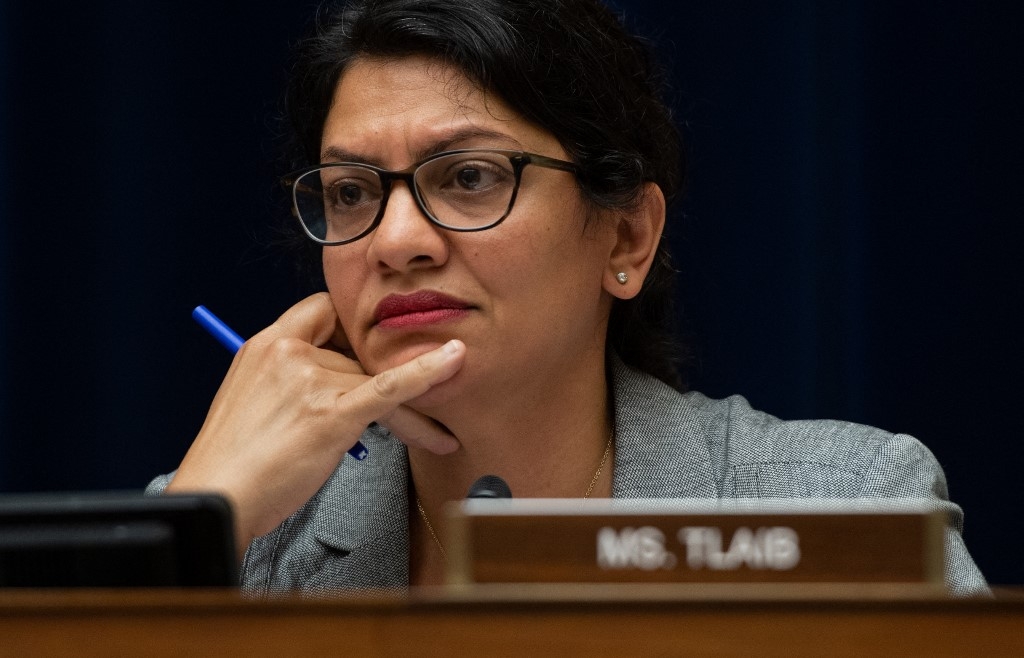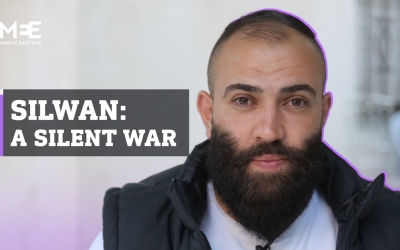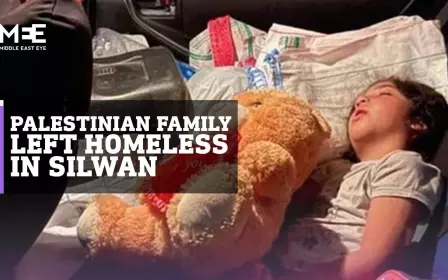End tax-exempt status for groups supporting Israeli settlements, Democrats demand

US Congresswoman Rashida Tlaib and a handful of her progressive allies are calling on the Treasury Department to stop allowing organisations that fund Israeli settlements to receive tax-exempt status in the United States.
Tlaib, along with Representatives Alexandria Ocasio-Cortez, Cori Bush, Andre Carson, Mark Pocan, Betty McCollum and Ayanna Pressley, sent a letter to Treasury Secretary Janet Yellen on Thursday, urging the department to ensure that US-based entities which may be in violation of international law were no longer eligible for tax-exempt status.
"We write to express our extreme concern that US charities are funding and providing direct support to Israeli organizations that are working to expand and perpetuate Israel's illegal settlement enterprise in violation of international law, including supporting the dispossession and forced displacement of Palestinians from occupied East Jerusalem neighborhoods," the letter reads.
"We are concerned that these policies violate US obligations under international law, as well as federal tax law."
New MEE newsletter: Jerusalem Dispatch
Sign up to get the latest insights and analysis on Israel-Palestine, alongside Turkey Unpacked and other MEE newsletters
Israeli settlements, which are built on occupied land that Palestinians see as their future state, are considered by many global bodies to exist contrary to international law.
There are currently around 200 Israeli settlements in the occupied West Bank and East Jerusalem, housing about 600,000 Israelis.
The settlements could be considered a war crime under the US-backed Rome Statute, which states that no occupying power has the right to directly or indirectly transfer parts of its civilian population to the lands it occupies.
It also forbids the transfer of the indigenous population - Palestinians - in the place on which the settlements are or will attempt to be located.
The International Court of Justice (ICJ) reaffirmed the illegality of Israel's settlements in an advisory statement in 2004, and in 2016 the UN Security Council reiterated previous resolutions passed by the body calling on Israel to halt all settlement activities. The US itself also has a decades-long policy that - with exception of the Trump administration - has denounced Israeli settlement expansion.
"Granting and sustaining [tax exempt] status recognizes and supports this unlawful conduct that is contrary to existing US obligations under international law and established US public policy," the lawmakers wrote in Thursday's letter.
'Enabling illegal Israeli settlement enterprise'
There have been several failed legal challenges to Washington's continued allowance of tax-exempt status for groups funding Israeli settlements, including a lawsuit that was dismissed in 1985 and another in 2017.
The 2017 lawsuit sought to force the IRS and other departments within the US Treasury to investigate non-profit groups which back Israeli settlements as well as all tax-exempt entities based in the US that transfer $20,000 or more a year to any country. The file claimed that about 150 non-profits had sent an estimated $280bn to Israel during the previous two decades.
Many of the plaintiffs, including Palestinian-American author and activist Susan Abulhawa, had lost homes or property due to Israeli settlement expansion, but the judge dismissed the case, ruling there was no evidence that their redress would not have taken place had the groups in question been barred from tax-exempt status.
The latest call against US tax benefits going to settlement-funding groups comes during a time of heightened tension in the occupied Palestinian territories and Israel in the aftermath of Israel's latest bombing of the Gaza Strip, which killed 248 Palestinians, including 66 children.
The upheaval initially started in early May, when an Israeli court ruled in favour of a settlement group seeking to take the homes of 30 Palestinians, including ten children, in the occupied East Jerusalem Sheikh Jarrar neighbourhood.
Months later, residents have warned that while the air strikes have stopped in Gaza, Israeli settler groups continue their attempts to force them out of their family homes. The situation has been repeated throughout occupied East Jerusalem and the rest of the West Bank for decades.
In Thursday's letter, Tlaib and others highlighted one group in particular that has funded initiatives behind these land grabs that has also benefited from US tax exemptions: the New York-based Central Fund of Israel (CFI).
"Recent reporting shows that CFI provided funding for nearly the entire budget of the Israel Land Fund (ILF), an organization that is a driving force behind the forced evicti0ns of Palestinian families in the Sheikh Jarrah neighborhood," the lawmakers wrote, noting that CFI had supplied at least $75m to grantees during the past six years.
"Its grantees are notable for their essential role in supporting and enabling the illegal Israeli settlement enterprise, including international crimes such as forcible transfer, the unlawful appropriation and destruction of property, and Israel's discriminatory military, housing, land, and property legal regimes among other violations," the lawmakers wrote.
According to the Israeli newspaper Haaretz, from 2009 to 2013, US charities funnelled more than $220m to Israeli settler groups, which include the American Friends of Beit El, a foundation headed by former US Ambassador to Israel David Friedman that raised tens of millions of dollars for Beit El, one of the most prominent settlements in the West Bank.
Other recipients of funds from US tax-exempted charities include Qomemiyut, which has advocated for the destruction of Gaza, and the Hebron Fund, which is dedicated to supporting Israeli soldiers and settlers in the West Bank city and "keeping Hebron in Jewish Hands".
Other US groups work directly in Israel instead of through local organisations. One such group, Nahalat Shimon International, an organisation based in Delaware, purchased Sheikh Jarrah properties in 2003 with the intention to build a 200-unit Jewish-only housing complex. At the time, Haaretz newspaper described the land grab as one that would "ensure Jewish control over the area around the nearby Shimon Hatzadik neighborhood".
'We are seriously concerned'
In their letter, lawmakers argue that such moves, which directly challenge the requirements of international law, should be enough to strip an organisation of its status as a charity.
"Charitable purposes, by definition, cannot be unlawful or aid and abet breaches of international law or internationally recognized human rights, and US-based entities must be prohibited from using federal tax law to help perpetrate violations against Palestinians in direct contravention of both international law and the basic principles behind US charitable law," lawmakers told the Treasury Department in Thursday's letter.
"We are seriously concerned that conferring the benefit of [tax exempt] status to these entities is in violation of the United States government's international law obligations to not explicitly or implicitly recognize violations of international humanitarian law or peremptory norms," they continued.
The lawmakers gave the Treasury Department a 22 August deadline to answer a series of questions on the topic, including whether the department planned on examining the issue further.
"If not, please provide an explanation detailing why this clear violation of US law does not merit examination by your Department," they noted.
They also asked the Treasury to issue a clear statement of its policy regarding the tax exemption statuses of groups operating in occupied territory, among other requests.
Middle East Eye delivers independent and unrivalled coverage and analysis of the Middle East, North Africa and beyond. To learn more about republishing this content and the associated fees, please fill out this form. More about MEE can be found here.






